Respondents to our survey praised the
quality of U.S. – made products: 61 percent said that U.S. clothing and shoes
were of better quality than foreign goods (34 percent said “much better” and 27
percent said “somewhat better”). Just 5 percent said American-crafted clothing
or shoes were of worse quality. And almost 60 percent of Americans said they
had tried to buy U.S. made clothing or shoes within the past year.
No wonder more and more companies are
adding at least a few U.S.-made items to their product lines. But no product is
worth your hard-earned dollars if it’s poorly made. For a snapshot of how
American-made products measure up, we bought one sample of six products from
big brands and asked our experts to assess their quality. Price is what we
paid.
L.L.Bean
women’s braided leather belt $35
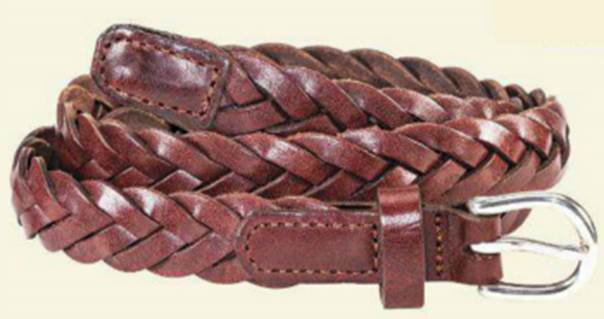
The leather isn’t butter-soft, but it’s
fine of r a belt. The braids are machine made, and the belt (made in
California) deatures simple, flat-cut leather with unfinished edges that could
abrade over time. The braid’s ends were taped before sewing and double
backstitched to create sturdier seams. The sewing is neat. The buckle
somponents fit together nicely, and the metal prong that slips into the hole is
well finiched, so it’s unlikely to snag on other materials.
Bottom
line
“it’s well made overall.” Our expert said,
“and decent for the price.”
Brooks
brothers cotton sport shirt $84
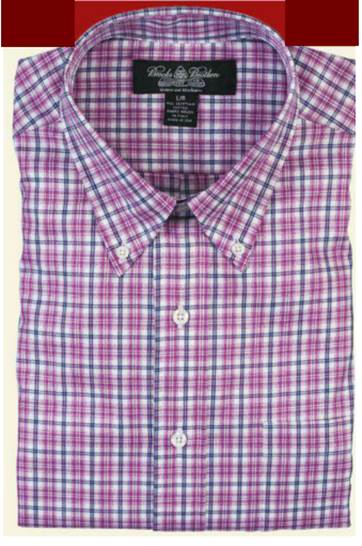
Made in America from long-staple Egyptian
cotton woven in Italy, the fabric is smooth, strong, and unlikely to pill.
(Egyptian cotton is typical in fine sheets and shirts). Brooks Brother sweats
the small stuff, and the shirts has impeccable details: the button holes are
perfect, the collar has interfacing that makes it “stand up and be noticed,”
our expert said; the striped fabric on the back of the shirt lines up with the
yoke, and the yoke lines up with the collar (“like a good wallpaper job,” our
expert noted). There are gussets on the side of the tail and small pleats int
eh sleeve to help resist accidental tears. The third also comes with two extra
buttons, one for the placket and another for the collar. Our only nitpick: a
few loose threads.
Bottom
line.
“it’s a well-made, high-quality shirt,” our
expert said, “with features that help it resist wear and touches you’d expect
from a tailor.”
Lands’
End rag socks $30
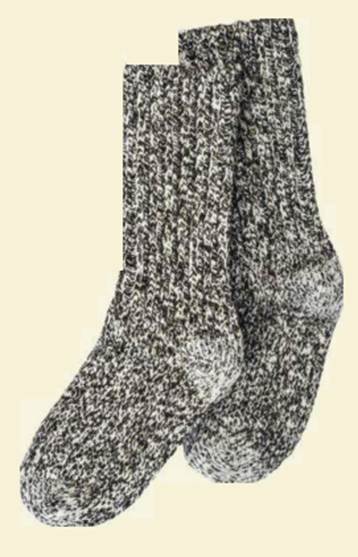
These thick casual socks (made in Osage,
lowa) are multicolored, as the name “rag” implies. They’re 66 percent cotton,
28 percent wool, 5 percent nylon, and 1 percent spandex. The heel and toe are
densely knit to keep those areas from wearing out; a bit of spandex in the heel
and toe adds strength. Elastic throughout helps the socks stretch and retain
their shape over time. But a raised seam across the top of the toe could
irritate the food and give a hiker blisters. Better socks have a smooth seam.
Other drawbacks: chaff in the wool (the processor didn’t eliminate all field
debris after the sheep was sheared), loose threads, and sloppy finishing at the
top of the ankle.
Bottom
line.
“Construction could be better, and you’d
expect higher wool content for the price,” our expert said.
New
balance 587 running shoe $115
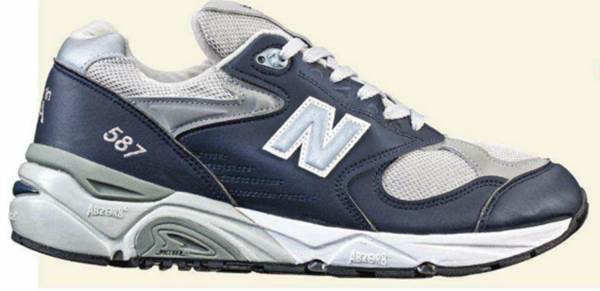
It looks well bult, with double-stitching
at most joints and good adhesion betwwen the sole and upper, but the synthetic
materials seem cheap. The shoe feels very stiff, and inflexible materials could
result in uanusuall ear.
Because the marterials aren’tporous, the
hoe is likely to retain heat. It’s also somewhat heavier than many of today’s
running shoes, which tend to be very light. The copany’s plants are in Maine
and Massachusetts.
Bottom
line
“The shoes appear well made but are very
stiff and use crude-looking materials,” our expert said. “For the money, there
are better choices.”
Woolrich
vintage throw $129
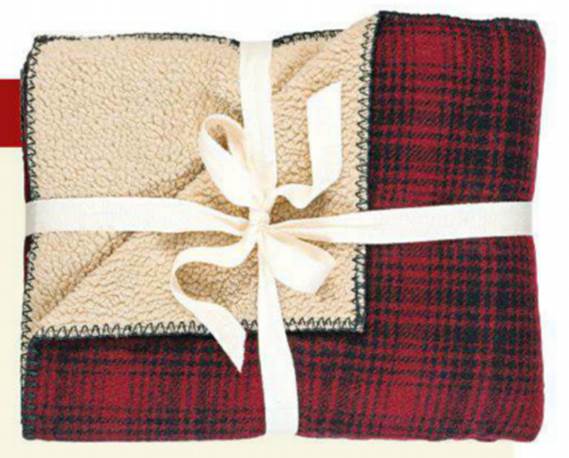
On one side, this blanket (made in
Woolrich, Pa.) is 84 percent wool and 16 percent nylon; on the other, it’s
nubby polyester and acrylic Sherpa fleece. The fleece side is a stretchy double
knit with a fuzzy texture to counterbalance the roughness of the wool on the
flip side. It has an old-fashioned look, and the big, loopy chain stitch around
the edge adds to the hand-sewn feeling, though it’s made by machine, as is the
rest of the blanket. If the edge were to wear out, the chain stitch would
unravel, but it’s purely decorative, so the blanket would stay intact. The
sides are actually held together with a conventional serged seam that’s
concealed from view.
Bottom
line.
“It’s a classic,” our expert said. “Good
fabric choices and construction details mean it’s something you’ll have for a
very long time.”
Orvis
cropped cotton pants for women $54
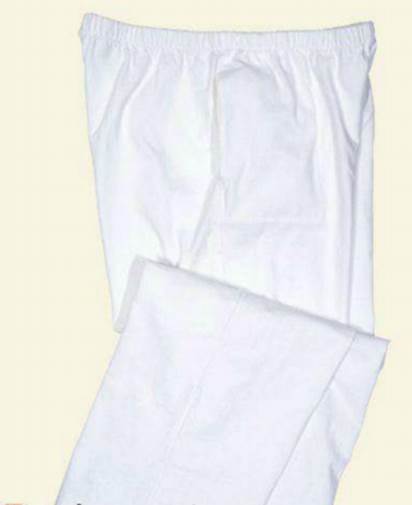
They’re made (in California) of a stretchy
jersey knit, like T-shirt fabric but denser. The two pockets aren’t pocket bags
but are instead a single piece of fabric folded over itself - a cheaper design.
The pants have an elastic waistband, a bar tack at each pocket to help prevent
ripping, a T-shirt-style hem, and serged stitching that’s reinforced at seams
to prevent unraveling. Sewing at the crotch and hem is neat, but hanging
threads as long as 4 inches could snag.
Bottom
line.
“The fabric is nice, but the pants seem
pricey for what they are,” our expert said.